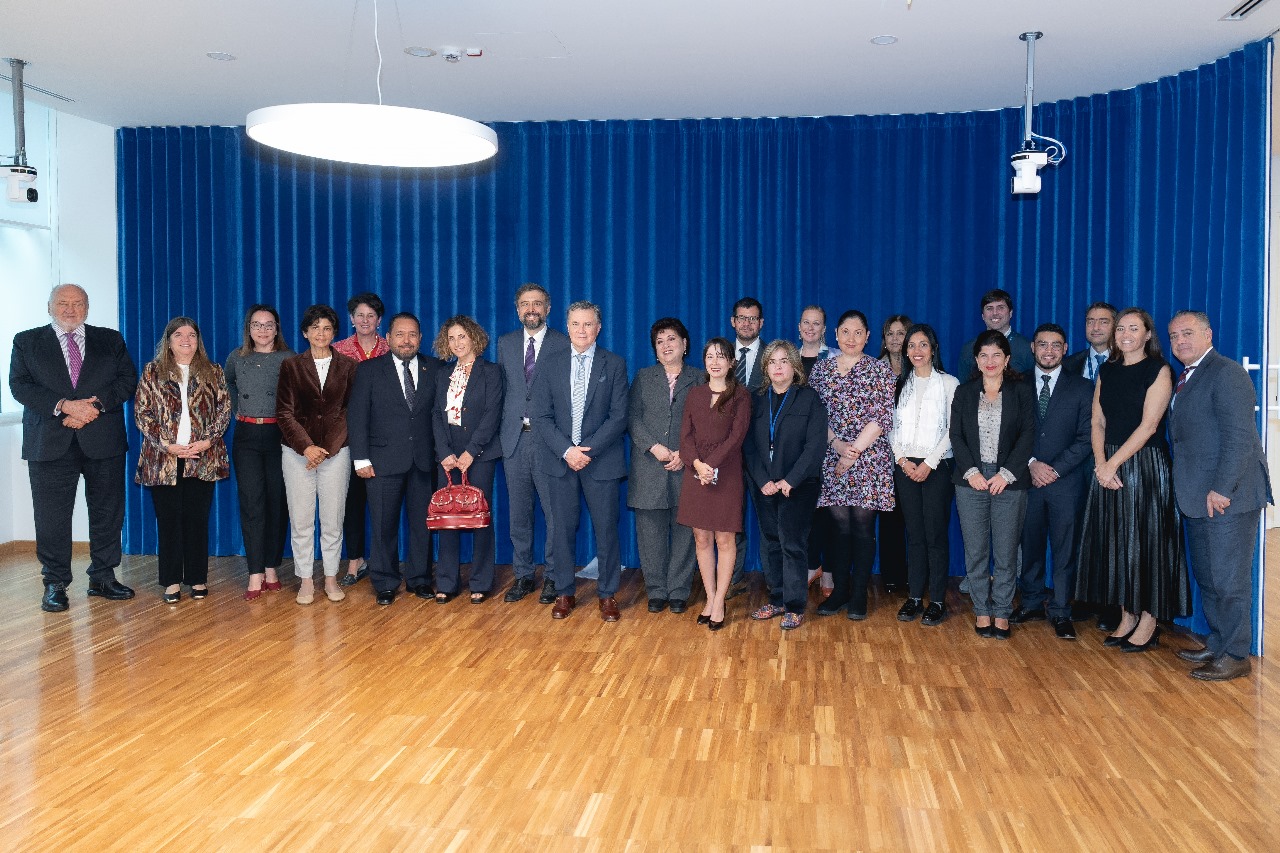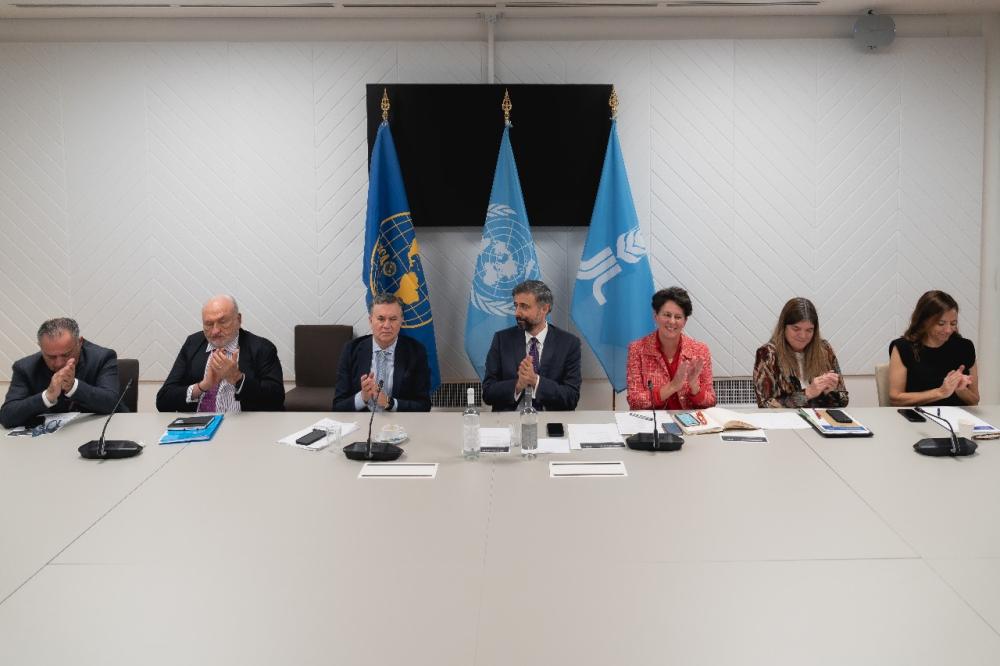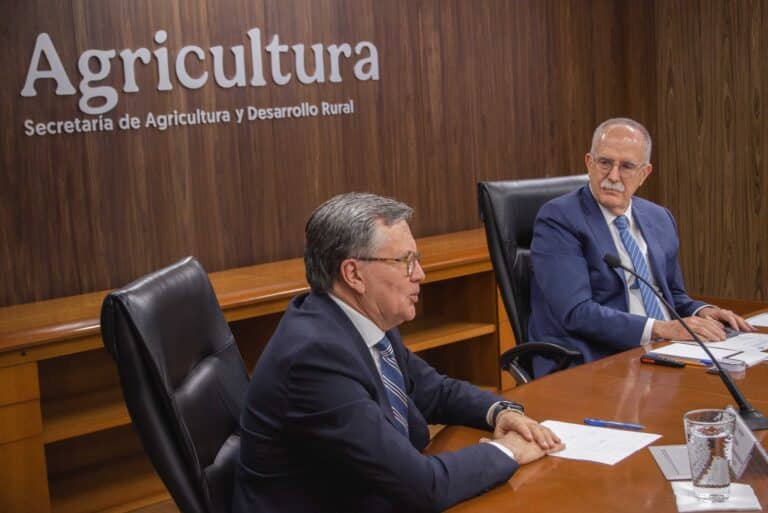IFAD President Alvaro Lario and IICA Director General Manuel Otero reaffirmed their commitment to strengthening rural communities in Latin America and the Caribbean. They ratified their commitment in Rome, during a roundtable with ambassadors from the LAC region.

Rome, 8 October 2024 (IICA). The President of the International Fund for Agricultural Development (IFAD), Álvaro Lario, and the Director General of the Inter-American Institute for Cooperation on Agriculture (IICA), Manuel Otero, reaffirmed their commitment to speeding up joint actions aimed at strengthening rural communities in Latin America and the Caribbean.
They ratified their commitment at IFAD Headquarters in Rome, where Lario and Otero held talks with ambassadors from Latin American and Caribbean countries accredited to the Republic of Italy and international organizations based in its capital, in a roundtable discussion also attended by Ambassador Antonella Cavallari, Secretary General of the International Italian-Latin American Organization (IILA).
The roundtable, entitled “Agricultural and rural development cooperation in the Americas – Opportunities for IFAD and IICA,” was attended by representatives of Argentina, Bolivia, Brazil, Costa Rica, Cuba, Dominican Republic, El Salvador, Haiti, Honduras, Mexico, Panama, Paraguay and Peru, who shared their points of view and made suggestions regarding IFAD and IICA’s work priorities and ways of increasing the pace and broadening the scope of the two organizations’ efforts.
At the recent G20 Meeting of Ministers of Agriculture in Brazil, Lario and Otero signed a memorandum of understanding whose main purpose is to guarantee food security in rural areas by promoting investment, the digitalization of agriculture, and the strengthening of value chains.
The two organizations have a long history of working together, dating back to 1987, when IFAD and IICA signed their first agreement with the aim of improving the quality of life of rural dwellers in the Latin American and Caribbean nations.
“It is a very special moment having the Director General of IICA here to talk about the region, to review the collaborative efforts we are engaged in and the projects we are working on together, and all the new work we want to undertake with a focus on family farming, which is what sustains rural economies, makes societies more inclusive, and helps combat climate change,” Lario said.

Otero reaffirmed the importance of strategic partnerships, which is even greater in difficult times, and explained that the premises for IICA’s technical cooperation are threefold: “farmers first, science and innovation for the transformation of agrifood systems, and agriculture as part of the solution.”
He also emphasized the importance of the region, given its productive power, as a guarantor of global food security, and insisted that “farmers, whom we need to be firmly rooted in rural areas, must be the focus of our policies and our efforts.”
Rossana Polastri, IFAD Regional Director for Latin America and the Caribbean, praised IICA for “the strength of its networking capabilities, its knowledge, and its ability to bring people together” in the region, and underlined that “the resilience of family farmers is a priority” for the United Nations agency. She also referred to the Caribbean as “a subregion that is very fragile, and we can pool resources with IICA to work together and work quickly.”
Katherine Meighan, Chief Legal and Governance Officer at IFAD, moderated the discussion with the GRULAC ambassadors.
Ambassador Cavallari welcomed the decision to “create synergies between the organizations operating in the region” and stressed that for the IILA “a key area is work on the issue of access to credit for rural communities, to enable them to access technologies.” She also highlighted the IILA’s decision to step up its efforts in projects related to crops such as coffee and cacao.
Efrén Arnoldo Bernal, the Ambassador of El Salvador and the Chair of GRULAC in Rome, acknowledged IICA’s work and described the members of the Group of Ambassadors as IFAD and IICA’s “allies” in achieving their common objectives, such as strengthening food security in the Latin American and Caribbean region and the situation of farmers.
Paraguay’s Ambassador, María José Argaña, emphasized the great importance of institutions like IICA, IFAD and IILA for her country, and called for “the emphasis to be placed on rural women, women farmers, of whom there are many in Paraguay, who are their families’ breadwinners and the backbone of agriculture.”
Carla Carneiro, the Ambassador of Brazil, stressed the importance of focusing on actions to combat climate change and adaptation and mitigation efforts, seeking concrete results. Therefore, facilitating access to credit for women in regions where there is climate and water stress, such as Brazil’s Northeast, is a priority, as are the contributions that her country can make based on its experience in installing cisterns for water resource management and conservation.
The representatives of Panama and Guatemala, Tomás Duncan Jurado and Olga María Pérez Tuna, called for assistance and training for indigenous farmers, and for rural dwellers affected by climate stress.
More information:
Institutional Communication Division.
comunicacion.institucional@iica.int











